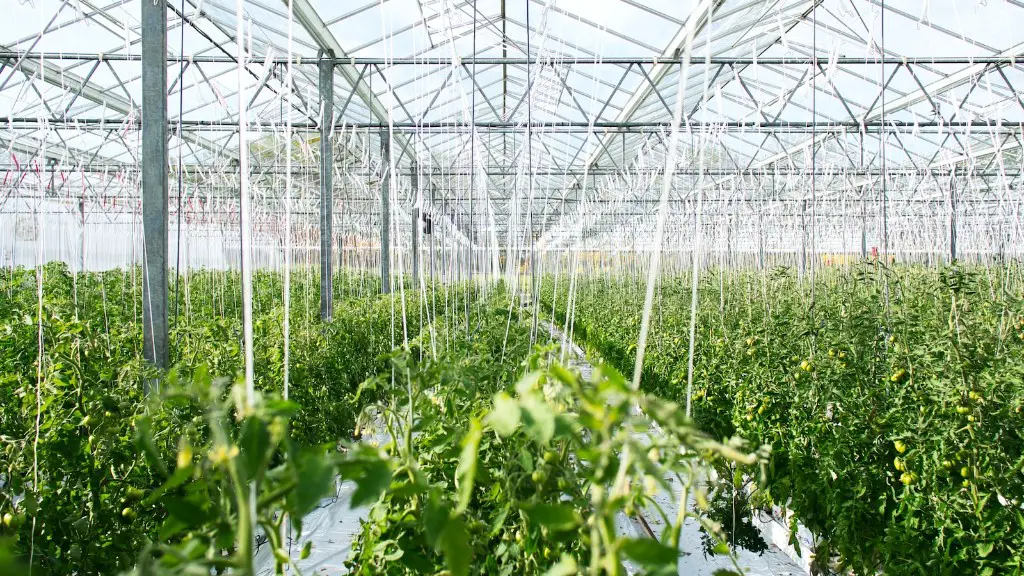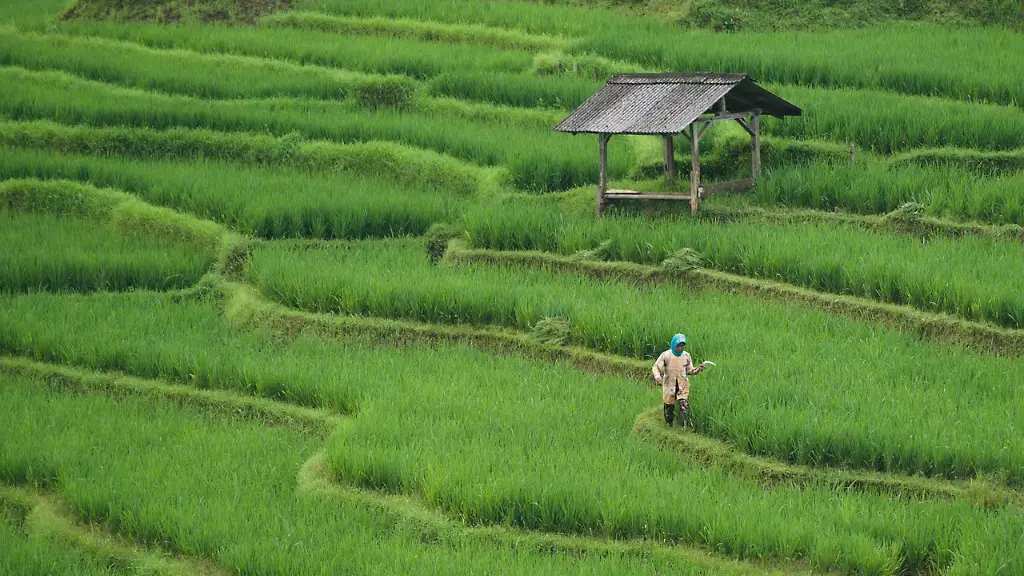Agriculture is an important economic sector in the Philippines, employing an estimated third of the population and accounting for around 16 percent of the country’s GDP. The importance of agriculture to the country’s economy is due to the highly diversified production base, the critical contributions of agricultural resources to the nation’s food security and the wealth generated through agri-business. Agriculture in the Philippines generates employment, directly and indirectly, while providing essential food supplies, creating an environment conducive to rural development and making an important contribution to poverty reduction.
The agricultural sector has a strong structural role in the Philippine economy, with a high degree of specialization in its production base, encompassing a wide range of crops, livestock and fisheries products which contribute to both domestic and export supply. The sector provides important employment opportunities for a large portion of the rural population, helping to reduce poverty levels, providing an essential income for peasant farmers and contributing to a dynamic agri-food sector. In addition, the sector plays a key role in providing a secure food supply for the country’s population, which is impacted by large population growth and limited arable land.
The agricultural sector in the Philippines provides crucial benefits to the rural population, which rely heavily on the sector for their livelihoods. The sector is important not only for its economic contributions to the rural population, but also because it contributes to environmental enhancement, soil fertility, rural development and energy security. The sector is also important in terms of creating employment and providing essential yields, and thus is vital to increasing the economic productivity of the country.
The Philippine government has implemented several strategies and policies to promote the growth and development of the agricultural sector, such as providing subsidies to farmers and encouraging the use of modern technology and techniques. The government also implements tax incentives and other measures aimed at increasing investment in the sector. Besides, the government also promotes the agricultural sector through research and development, as well as providing extension services and other marketing initiatives.
The country’s farmers are dependent on external markets for their products, and thus the success of the sector depends on the ability of the country to successfully export its agricultural products. The government has taken a number of steps to enhance the competitiveness of Philippine agricultural products in the global market, by providing technical assistance and appropriate pricing mechanisms, and also by pursuing certain multilateral and bilateral trade agreements with key trading partners.
Overall, the agricultural sector in the Philippines is an important sector in terms of providing income, creating employment opportunities, and contributing to poverty reduction. The government has implemented several initiatives to enhance the sector’s competitiveness and productivity, and has taken steps to improve the marketing of Philippine products globally. The agricultural sector, if provided with continued support from the government, will remain a key sector, contributing to the country’s economic growth and development.
Agricultural Expansion and Diversification
In recent years, agricultural expansion and diversification have been a major focus of the Philippine Government’s efforts to promote sustained economic development across the country. By encouraging farmers to move away from monoculture and subsistence farming, and instead to diversify into other crops and animal-rearing, the government has sought to increase agricultural productivity and create new, higher value export products. This has helped to increase the profitability of agricultural operations, improve access to formal input and output markets and to increase the socio-economic benefits of agriculture to local communities.
To encourage these trends, the Government has implemented an array of regulatory, incentive and technical support measures. These have sought to enhance the capacity of farmers to access new markets, allowing them to diversify their production base, expand scale and introduce more technologically advanced production processes. In addition, the Government has also implemented agricultural extension services, and training programs aimed at increasing the advanced skillsets of farmers and encouraging the transfer of knowledge between rural farmers and experts in the field. This has helped to improve the overall productivity of agricultural systems and reduce poverty in rural areas.
Furthermore, the Government has also made significant investments in the agricultural sector, in the form of providing access to irrigation, fertilizer and seed subsidies, as well as in providing support to smallholder farmers in order to increase their agricultural productivity. This has been important in enhancing agricultural competitiveness and improving the competitiveness of Filipino agricultural products in international markets.
Overall, the Government has taken various steps to increase agricultural production and productivity, expand diversity and ensure the sustainability of Philippine agriculture. These have had positive effects on improving incomes and reducing poverty in rural areas, while providing essential supplies of food and agricultural materials to the overall economy.
Agricultural Exports and Imports
The importance of agriculture to the country’s economy is also due to its contribution to the nation’s foreign exchange earnings. The Philippines’ agricultural sector is highly dependent on exports and imports, as the vast majority of the agricultural produce is either imported from, or exported to, other countries. In 2019 the country exported $7.2 billion worth of agricultural products and imported approximately $12 million worth of agricultural imports.
The most important export commodities include seafood, coconut and coconut products, bananas, pineapple, sugar, and processed fruit and vegetables, which account for 44 percent of total exports. Exporters are supported by the Philippines’ agribusiness sector, which provides the necessary infrastructure and technology to produce, process and market the country’s products in international markets. The international demand for Philippine products has been increasing consistently in recent years, which has helped the sector to contribute significantly to the nation’s economic growth and development.
In terms of imports, the main items that are imported are corn, feed grains, soybeans, sugar, rice, corn and soybean meals, higher-value agricultural products such as fresh and processed fruit, vegetables and livestock products, as well as industrial crop products such as textiles and garments. The majority of the country’s imported agricultural products come from the USA, Japan and Canada. By importing these agricultural products, the Philippines is able to meet its rising demand for food products and increase its domestic supply of agricultural commodities. As such, imports play an important role in the country’s development, in terms of providing a much-needed source of short-term food security and enabling the country to remain competitive in the global market.
Agricultural Production and Food Security
Agriculture is an important sector in terms of improving food security in the Philippines. In spite of the country’s strong economic performance, many of its population are still classified as food insecure. The agricultural sector therefore plays an essential role in ensuring sufficient food supply for the population.
Through increasing agricultural production, along with other strategies, the Government aims to meet the current and future demand for food, both for human and animal consumption. The introduction of new production techniques, the implementation of agricultural inputs, such as improved seeds and better chemicals, and the access to formal markets are all key elements in increasing production, improving agricultural productivity and ensuring food security in the Philippines.
In addition, the sector provides a number of other benefits in terms of improving the environmental situation. This is due to its contribution to soil fertility, as well as being an important source of renewable energy resources, such as wood and bio-ethanol. The sector also provides a valuable source of foreign exchange, particularly through exporting high-value agricultural products to international markets. This has helped the country to improve its balance of trade, while also providing much-needed income to farmers and other related occupations in rural areas.
Overall, agriculture plays an essential role in the economic and social development of the Philippines. It is a sector which is highly diversified and is of great importance to the nation’s food security and export earnings. The sector has been targeted by the government for a range of initiatives to promote agricultural development and increase efficiency, productivity and sustainability. These initiatives are essential if the Philippines is to take full advantage of agricultural resources, reduce poverty and ensure a secure food supply.
Agricultural Policy and Support Programs
The Philippine Government recognizes the importance of agriculture to the economy and has implemented a range of policy measures to support the sector. These policy measures are aimed at reducing poverty, improving productivity, increasing employment opportunities and access to food, and achieving greater international competitiveness.
The Department of Agriculture (DA) is the government body responsible for driving this agenda. The DA implements various policy measures and strategies to promote agricultural development, in addition to providing essential technical assistance and support programs. The government’s strategic initiatives include providing access to credit, insurance and agricultural inputs, as well as provision of extension and marketing services.
The DA has also initiated some market-oriented reform initiatives such as price stabilization programs, the liberalization of import and export regulations and the implementation of price control mechanisms, which have sought to improve the competitiveness of Philippine agricultural products in the global market.
In addition to these initiatives, the government has also allocated significant funds to agricultural research and development. These projects have sought to promote the efficient use of resources, introduce new production and marketing technologies, increase the productivity of smallholder farmers, and develop high-value export products.
Overall, the Philippine Government has taken a number of steps to enhance the productivity of the agricultural sector, improve the country’s access to international markets and increase its competitiveness in global agricultural markets. These efforts have helped to ensure greater food security, reduce poverty and create employment opportunities, while contributing to the country’s economic development.
Agriculture and Rural Development
Agriculture and rural development are of great importance to the Philippines, and have been a major focus of government policy in recent years. The government’s approach to rural development is focused on the promotion of sustainable development through the provision of basic and appropriate services, support in the promotion of agri-tourism, and other rural infrastructure and services to support farmers and rural communities.
The Government has also initiated several development initiatives, such as integrated watershed management, soil management and soil conservation, small-scale and micro-irrigation, and access to markets and credit. These initiatives have sought to enhance the competitiveness of rural-based activities, and support the development of the agricultural sector.
The Government has also promoted agricultural diversification and the introduction of new technologies and efficient production practices. This has enabled farmers to engage in a wide range of activities, increase their profits and improve the sustainability of their operations.
The Government has also implemented public extension services, and provided support in the form of agri-tourism packages, which have enabled farmers to diversify their activities and take advantage of new income sources. Through these initiatives, the Government has sought to enhance the competitiveness of farmers, increase their incomes and expand their market access.
Overall, the support of the Philippine Government has been essential to the development of the agricultural sector and the development of rural communities. By investing in public services, infrastructure and programs, the government has been able to improve the competitiveness and profitability of agricultural activities, while increasing employment opportunities and reducing poverty.





